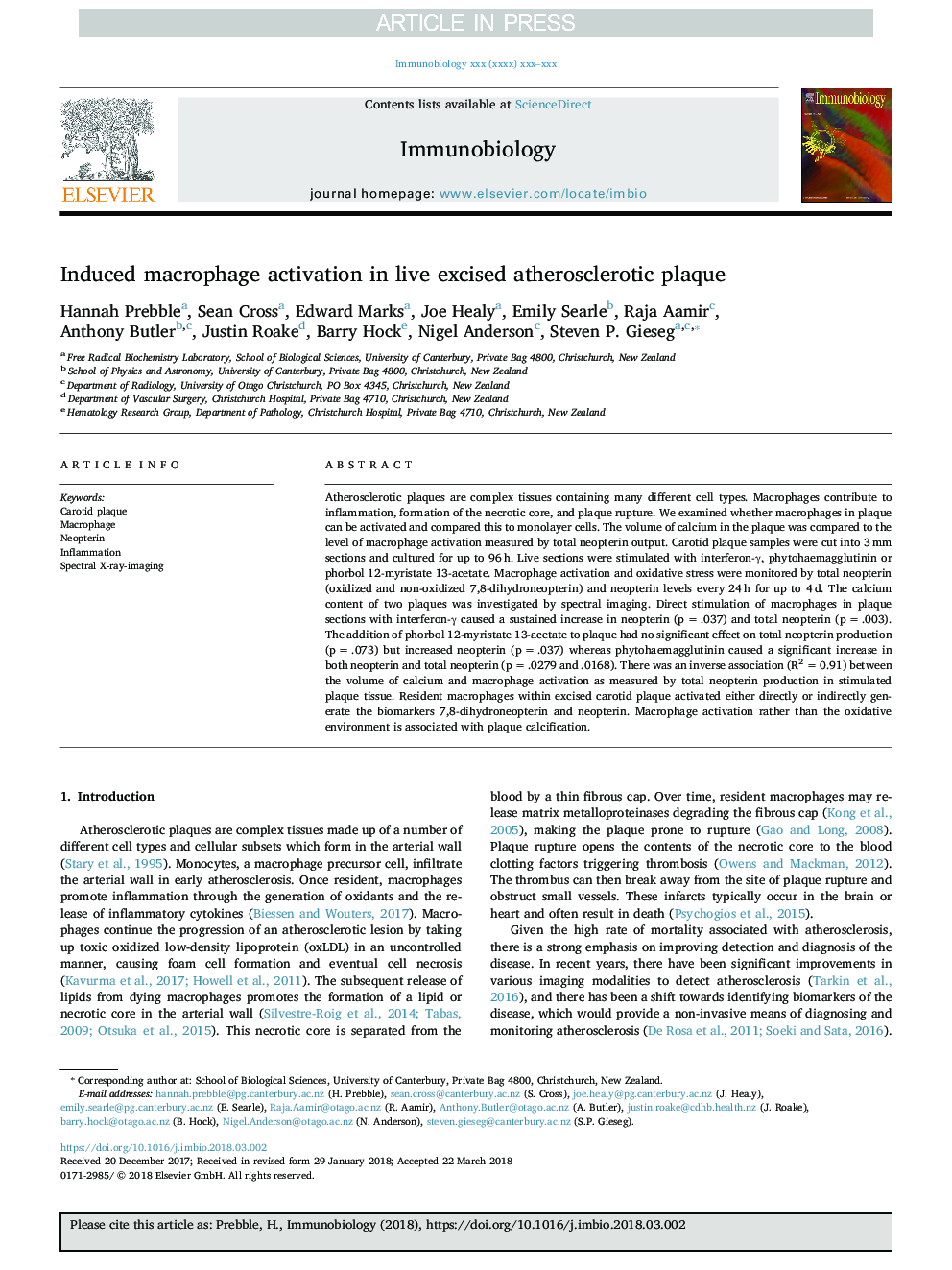| Article ID | Journal | Published Year | Pages | File Type |
|---|---|---|---|---|
| 8472024 | Immunobiology | 2018 | 10 Pages |
Abstract
Atherosclerotic plaques are complex tissues containing many different cell types. Macrophages contribute to inflammation, formation of the necrotic core, and plaque rupture. We examined whether macrophages in plaque can be activated and compared this to monolayer cells. The volume of calcium in the plaque was compared to the level of macrophage activation measured by total neopterin output. Carotid plaque samples were cut into 3â¯mm sections and cultured for up to 96â¯h. Live sections were stimulated with interferon-γ, phytohaemagglutinin or phorbol 12-myristate 13-acetate. Macrophage activation and oxidative stress were monitored by total neopterin (oxidized and non-oxidized 7,8-dihydroneopterin) and neopterin levels every 24â¯h for up to 4â¯d. The calcium content of two plaques was investigated by spectral imaging. Direct stimulation of macrophages in plaque sections with interferon-γ caused a sustained increase in neopterin (pâ¯=â¯.037) and total neopterin (pâ¯=â¯.003). The addition of phorbol 12-myristate 13-acetate to plaque had no significant effect on total neopterin production (pâ¯=â¯.073) but increased neopterin (pâ¯=â¯.037) whereas phytohaemagglutinin caused a significant increase in both neopterin and total neopterin (pâ¯=â¯.0279 and .0168). There was an inverse association (R2â¯=â¯0.91) between the volume of calcium and macrophage activation as measured by total neopterin production in stimulated plaque tissue. Resident macrophages within excised carotid plaque activated either directly or indirectly generate the biomarkers 7,8-dihydroneopterin and neopterin. Macrophage activation rather than the oxidative environment is associated with plaque calcification.
Related Topics
Life Sciences
Biochemistry, Genetics and Molecular Biology
Cell Biology
Authors
Hannah Prebble, Sean Cross, Edward Marks, Joe Healy, Emily Searle, Raja Aamir, Anthony Butler, Justin Roake, Barry Hock, Nigel Anderson, Steven P. Gieseg,
